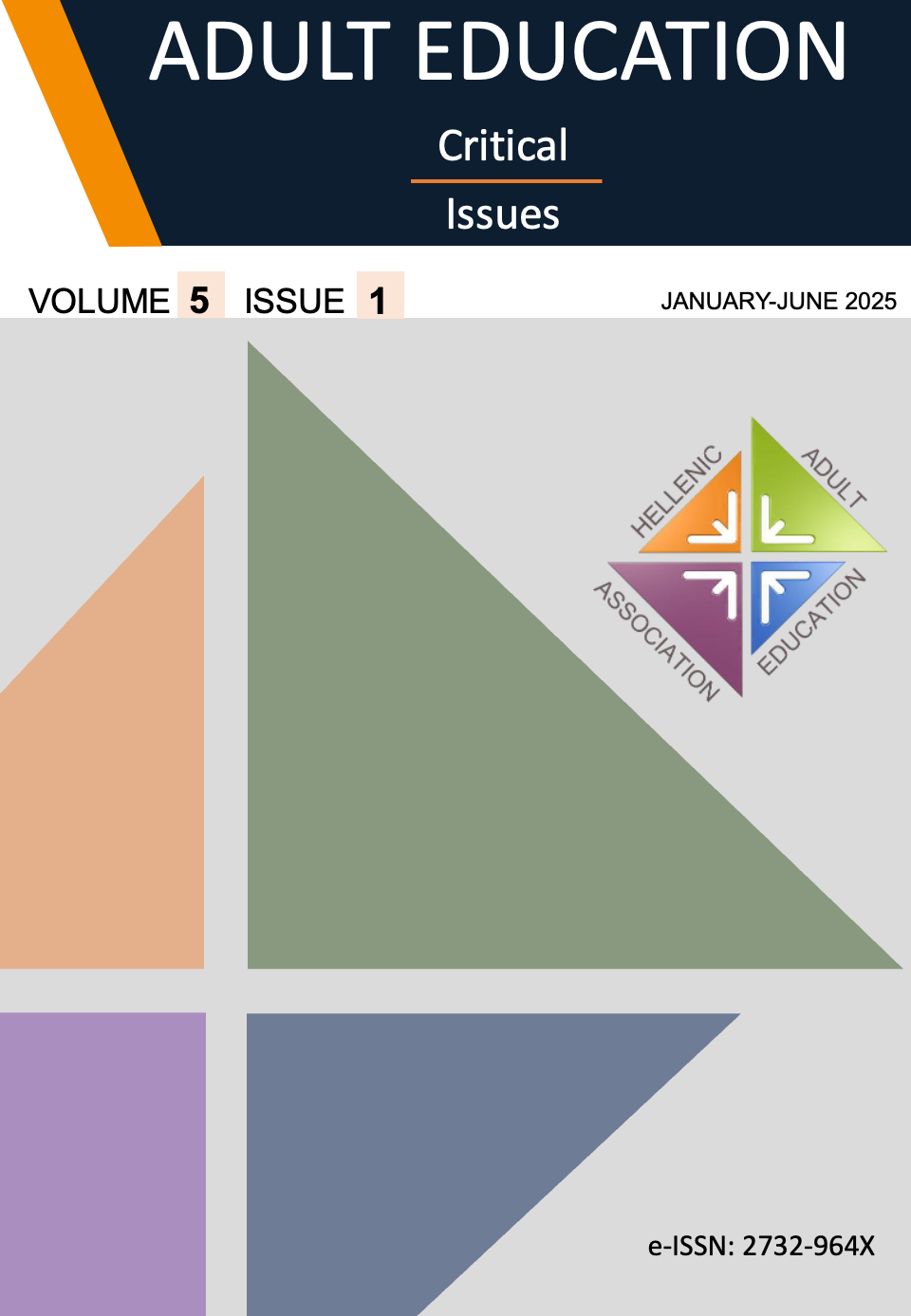Ο κινηματογράφος ως εκπαιδευτικό εργαλείο στα Σχολεία Δεύτερης Ευκαιρίας: Δυνατότητες και προκλήσεις
Abstract
Η παρούσα μελέτη εξετάζει τη χρήση του κινηματογράφου ως εκπαιδευτικού εργαλείου στα Σχολεία Δεύτερης Ευκαιρίας (ΣΔΕ), εστιάζοντας στις δυνατότητες και τις προκλήσεις που συνοδεύουν την ενσωμάτωσή του στη διδασκαλία ενηλίκων. Τα ΣΔΕ παρέχουν σε ενήλικες μαθητές τη δυνατότητα να αποκτήσουν βασικές γνώσεις και δεξιότητες, αντιμετωπίζοντας κοινωνικές και εκπαιδευτικές ανισότητες. Ο κινηματογράφος, μέσω της συνδυασμένης οπτικής και ακουστικής εμπειρίας, προσφέρει έναν καινοτόμο τρόπο διδασκαλίας, ενισχύοντας τη συναισθηματική εμπλοκή, την κατανόηση σύνθετων εννοιών και την κριτική σκέψη. Οι βασικές δυνατότητες της χρήσης του κινηματογράφου περιλαμβάνουν τη δημιουργία ενός ελκυστικού μαθησιακού περιβάλλοντος, την ανάπτυξη δεξιοτήτων συνεργασίας και επικοινωνίας, καθώς και την ενίσχυση της συναισθηματικής και γνωστικής σύνδεσης των μαθητών με το εκπαιδευτικό περιεχόμενο. Παράλληλα, οι θεωρητικές βάσεις της παιδαγωγικής, όπως η ενεργητική μάθηση (Kolb), η κοινωνική αλληλεπίδραση (Vygotsky), και η κριτική παιδαγωγική (Freire), υπογραμμίζουν τη σημασία της βιωματικής μάθησης μέσω της κινηματογραφικής ανάλυσης. Ωστόσο, η ενσωμάτωση του κινηματογράφου στα ΣΔΕ αντιμετωπίζει προκλήσεις, όπως η περιορισμένη πρόσβαση σε κατάλληλο εξοπλισμό και πόρους, η αντίσταση στην αλλαγή από εκπαιδευτικούς και μαθητές, και η έλλειψη εκπαιδευτικών υλικών προσαρμοσμένων στις ανάγκες των μαθητών. Παρόλα αυτά, προτείνονται στρατηγικές, όπως η προσεκτική επιλογή ταινιών, η σχεδίαση δραστηριοτήτων που προάγουν τη συμμετοχή και η δημιουργία μικρών κινηματογραφικών έργων από τους μαθητές, για την ενίσχυση της αποτελεσματικότητας της προσέγγισης. Συνολικά, η χρήση του κινηματογράφου στα ΣΔΕ αποτελεί ένα πολλά υποσχόμενο εργαλείο για τη βελτίωση της μαθησιακής εμπειρίας, την ενίσχυση της προσωπικής ανάπτυξης των μαθητών και τη δημιουργία ενός πιο συμμετοχικού και κοινωνικά ευαίσθητου εκπαιδευτικού περιβάλλοντος.
Article Details
- Zitationsvorschlag
-
Damala, P. (2025). Ο κινηματογράφος ως εκπαιδευτικό εργαλείο στα Σχολεία Δεύτερης Ευκαιρίας: Δυνατότητες και προκλήσεις. Adult Education Critical Issues, 5(1), 67–78. https://doi.org/10.12681/haea.39897
- Rubrik
- Articles

Dieses Werk steht unter der Lizenz Creative Commons Namensnennung 4.0 International.
Authors who publish with this journal agree to the following terms:
- Authors retain copyright and grant the journal right of first publication with the work simultaneously licensed under a Creative Commons Attribution License that allows others to share the work with an acknowledgement of the work's authorship and initial publication in this journal.
- Authors are able to enter into separate, additional contractual arrangements for the non-exclusive distribution of the journal's published version of the work (e.g., post it to an institutional repository or publish it in a book), with an acknowledgement of its initial publication in this journal.
- Authors are permitted and encouraged to post their work online (e.g., in institutional repositories or on their website) prior to and during the submission process, as it can lead to productive exchanges, as well as earlier and greater citation of published work (See The Effect of Open Access).



